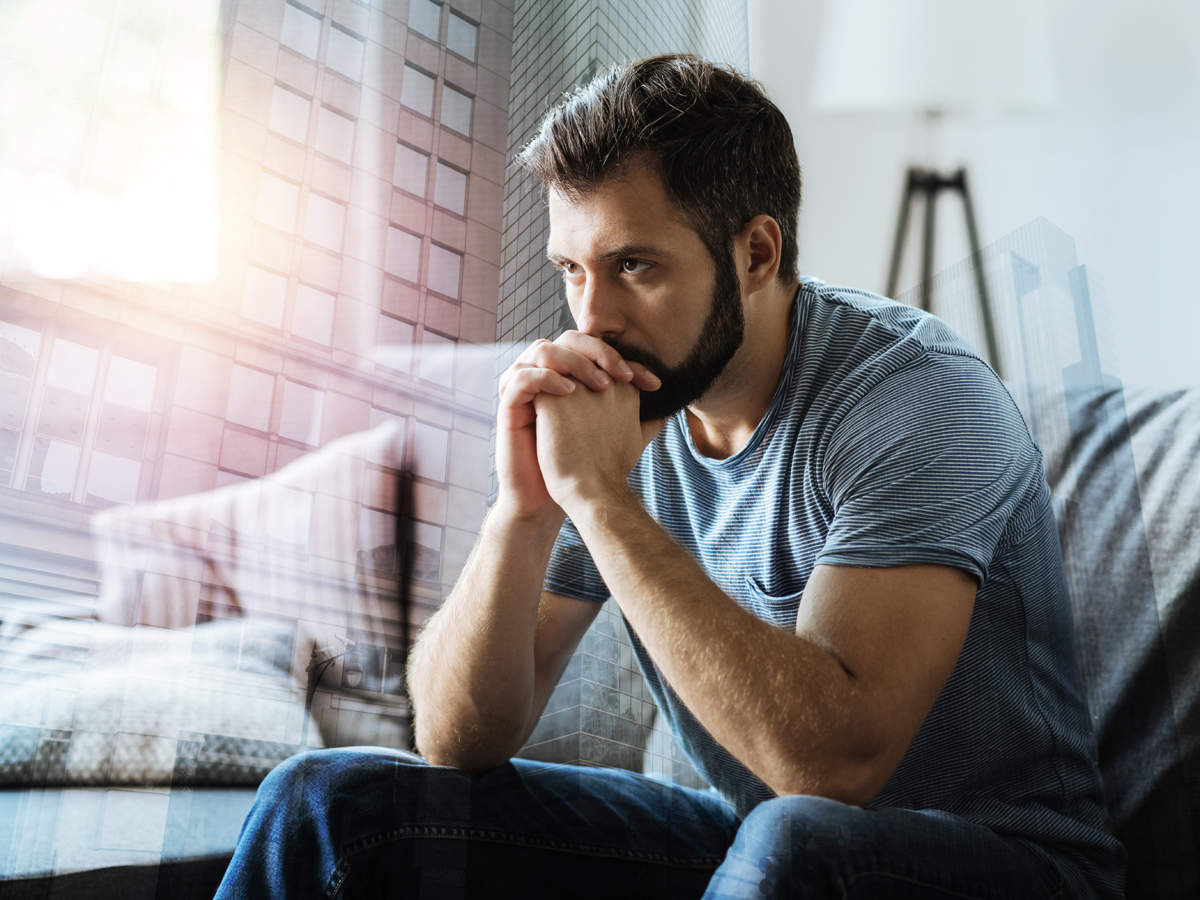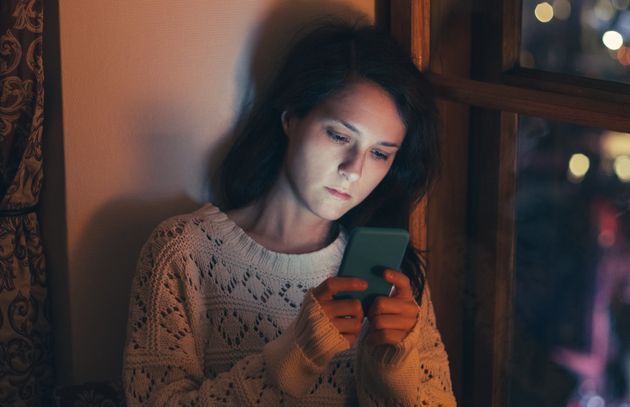
Social anxiety is the fear of social situations and interaction with other people that automatically bring on feelings of self-consciousness, judgment, evaluation, and criticism. Social anxiety is the fear of being judged and evaluated negatively by other people, leading to feelings of inadequacy, embarrassment, humiliation, and depression. If a person usually becomes anxious in social situations but seems fine when they are alone, then “social anxiety” may be the problem.
Social anxiety disorder may also be related to having social phobia which is a much more common problem. Millions of people all over the world suffer from this devastating and traumatic problem every day of their lives, either from a specific social phobia or from a more generalized social phobia.
Safer At Home
Agoraphobe is a social anxiety and panic disorder. So, “safer-at-home” is what many dealings with the phobia were built for. What many were not prepared for though was just how debilitating it would feel to watch the internal, irrational fears of imagined threats become someone’s external reality in facing an actual threat to a varying extent.
While the rest of the world is struggling to believe in this terrifying post-pandemic world, people with anxiety disorders are struggling to maintain their disbelief in the seemingly impossible apocalyptic scenarios that they may been dreading.
On the other side of agoraphobia, those with separation anxiety are likely feeling nightmarishly alone because of social distancing. People with contamination-related anxiety disorders like germaphobia and certain types of OCD are obviously getting hit particularly hard.
Disordered eating may be triggered by the stressors of quarantining at home. Those with generalized anxiety and panic disorders aren’t being spared, either, especially since shortness of breath is a symptom of both COVID-19 (the disease caused by coronavirus) and panic attacks. All that compounds with hypochondria, which may be likely amplified.
A specific social phobia would be the fear of speaking in front of groups, whereas generalized social anxiety indicates that the person is anxious, nervous, and uncomfortable in almost all (or the majority of) social situations.
Social Anxiety Disorder Symptoms
People with social anxiety disorder usually experience significant emotional distress in the following situations:
- Being introduced to other people
- Being teased or criticized
- Being the center of attention
- Being watched while doing something
- Meeting people in authority (“important people”)
- Most social encounters, particularly with strangers
- Making “small talk” at parties
- Going around the room in a circle and having to say something
This list is certainly not a complete list of symptoms because there are other feelings that may be associated with social anxiety.
Physical Symptoms from Social Anxiety
The physiological manifestations that accompany social anxiety may include intense fear, racing heart, turning red or blushing, dry throat and mouth, trembling, swallowing with difficulty, muscle twitches, shaky hands, excessive sweating, and eye contact problems.
The social anxiety physical symptoms may actually be constant and an intense anxiety that does not go away.
Oftentimes, people with social anxiety disorder actually do know that their anxiety is irrational and does not make rational sense. The fear is not based on fact. Nevertheless, “knowing” something is never the same thing as “believing” and “feeling” something. Thus, in people with social anxiety, thoughts and feelings of anxiety persist and show no signs of going away. We would suggest that the anxiety being felt is now considered to be chronic in this situation.
The Right Kind of Treatment is Successful
The good news is that cognitive-behavioral therapy for social anxiety has been extremely successful. People who have had this anxiety problem for long periods of time will blossom while in therapy. After therapy, people with this problem will experience a changed life that is no longer totally controlled by fear and anxiety.
Social anxiety, as well as the other anxiety problems, can be successfully treated.There is no rational reason to continue living with social anxiety. There is no rational reason to believe you must “manage” it the rest of your life.
On the contrary, you don’t need to live with social anxiety disorder for the rest of your life. The decision to get better belongs to the person being afflicted by a social anxiety disorder.
Seeking Effective Treatment
In seeking help for this problem, we recommend working with one of our counselors who understands this problem well and knows how to treat it. Foundations Counseling helps people become informed clients and we encourage everyone to ask questions.
It is true that those people who have lived with social anxiety do realize that their mind is over-exaggerating, but it still feels like others are watching and judging. The feeling of self-consciousness is very real.
As a rule of thumb, remember that the true licensed professional will always welcome your questions. Those people who have or have had social anxiety need support, encouragement, and a relatively stress-free environment while progressing through active cognitive-behavioral therapy. We like to remind our clients thatthis is your time to get better and heal. This is also your time to move forward in life, away from the effects of anxiety, fear, and avoidance.
Overcoming Social Anxiety
While you’re in the middle of this problem, it can definitely feel hopeless. As a matter of fact, it can feel like you may never get better. Life is just one gut-wrenching anxiety problem after another. But this can be stopped, managed, and reduced in a relatively short period of time. It is important to find a cognitive-behavioral therapist who understands and specializes in the treatment of social anxiety.
Remember that millions of people experience social anxiety and social phobias. It isn’t easy to overcome but many who seek professional help will be able to put their fears behind them and live a healthy life.
How to Conquer Social Anxiety
- Possess the understanding and awareness of an existing problem.
- Having a commitment to carry through with cognitive-behavioral therapy even when it seems difficult.
- Practice, practice, practice to get that information deep down into your brain so that the strategies and rational beliefs you learn become automatic.
- Participation in a social anxiety therapy group in which you can slowly and gradually work on problems that cause you anxiety in the real world.
Everything is voluntary. A person must be ready to do an activity before they do it.
Our experience also tells us that it is simply impossible to stop a motivated person who refuses to give up practicing. The role of your therapist is to know specifically what to do and how quickly to do it. This sounds easy, but it is not. You must be practicing the right material and you must proceed at the correct pace for your own anxieties. You are more in control of this than your therapist.
Today, cognitive-behavioral therapy is used to treat all forms of social anxiety. We focus on present-day problems and symptoms and use many small strategies, techniques, and methods to eradicate anxiety thinking and anxious feelings.
This is where learning, motivation, and practice come in. The more you can practice these small strategies at home, and then begin using them in real-life in conjunction with your therapist, the quicker social anxiety and social phobia can be reduced and will be overcome.
We are always here to help the people residing in McKinney, Plano, Dallas, Denton, Allen, Garland, and the surround communities found throughout Texas. If you are experiencing social anxiety or social phobias today, or you know someone who may be, please contact our specialist team at Foundation Counseling.



